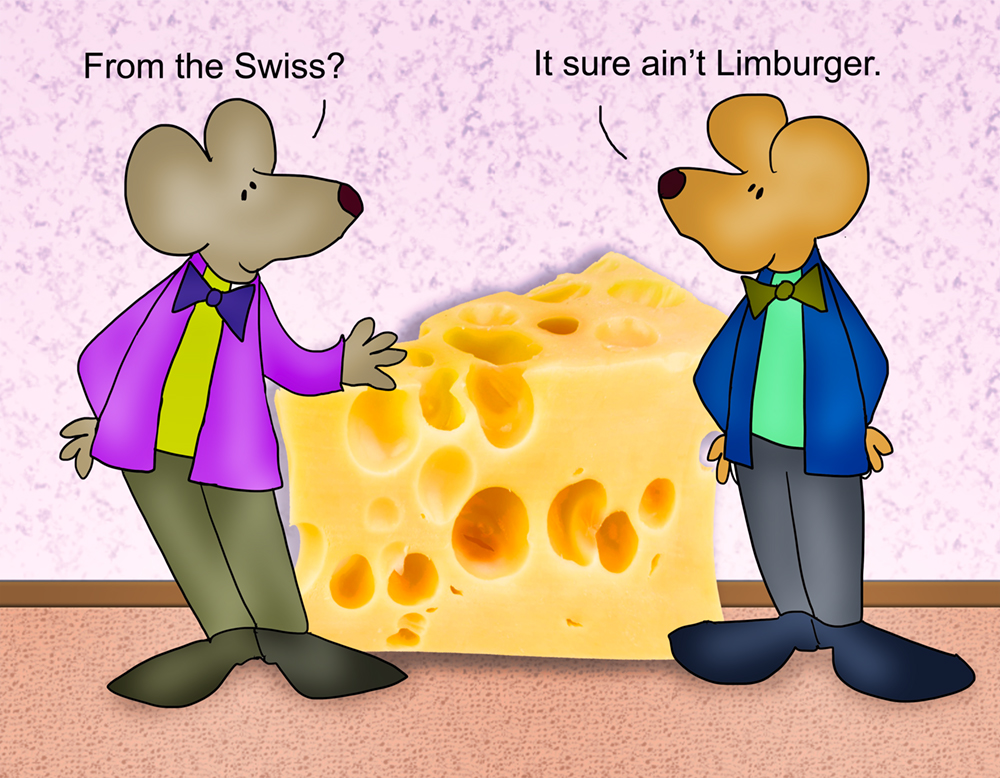Monday night, the Green Bay Packers were playing the Detroit Lions in NFL action. I kept running in the kitchen and checking on the game, while we watched other shows through streaming in our “regular” spot. It was a two TV night.
Mary asked why I was rooting for Green Bay, and I said, “Although I’ve never been there, I’ve sure do love Wisconsin. The Badger State. The Cheesiest State in all the Land.” She laughed and said, “Go Green Bay.”
I told her they probably had more dairy cows than anyone, as such — without actually knowing whether this was true or not. So I had to look it up. While I couldn’t find an actual head count on those udders, I did find out about dairy production. It turns out California is number one in this distinction. It produces 40,898,000,000 pounds of milk per year. Wisconsin is second, at 29,030,000,000. They are the big guns, or should I say, “squirters.” No one else even comes close to these two.
Ohio is number 11, with 5,493,000,000. Rhode Island, and Alaska are 49 and 50, respectively. I guess there isn’t a lot of room for cows in RI, and up in AK, they keep churning out ice cream instead of milk.
But cheese is another matter entirely. Here, Wisconsin is the tops. The big block. The mightiest wedge. They started making cheese a long time ago. Commercially, it started because cheese kept longer than milk or butter. And, since storage and transportation was limited back then, it only made sense. Smart Cheeseheads.
A guy named Charles Rockwell was one of the state’s earliest cheesemakers, up in a place called Koshkonong. He started in 1837. And then there was a woman named Anne Pickett. Could there be a better farming name? She used milk from neighbors’ cows, and established a cheese factory in Lake Mills around 1841.
The immigrant population influenced the cheese making there, for sure. Swiss cheese was among the first Old-World cheeses produced in Wisconsin. You guessed it. The Swiss people brought it. The others are also in line. “The Italians brought mozzarella, provolone, and gorgonzola. The French brought Camembert, Brie, and a variety of blue cheeses. The Germans brought Muenster and Limburger and the English brought Cheddar. Dutch immigrants brought Gouda and Edam.” (wisconsinhistory.org)
The industry really grew. By the 1920s, over 2,800 cheese factories were in the state of Wisconsin.
Wisconsin. Even the way it sounds is oddly satisfying. It has a lot of good “place” names up there, like Lake Mills and Bear Bluff. Or Fond du Lac, Outagamie, and Sheboygan Counties.
It just seems like such a wholesome place, what with all that milk and cheese, and rolling green hills, and people named Pickett. If only they had the most egg production, they’d be pretty close to perfect. But that, would be Iowa. Lots, and lots of chickens live in Iowa.
I talked to my brother this week, and he found out, after testing, that he is allergic to eggs, and dairy. Such a thing to find out when you are 67 years old. I told him there on the spot that he was surely adopted, as this was Un-Kronenberger to be allergic to these things. We’ll still accept him as one of us, but I’m sure there will be awkward moments at family gatherings now. Because, if I didn’t know better, I would have been sure that all of us were born in Wisconsin. Or Iowa.
But here we are. Green Bay won the game on Monday night, by one point. There’s a lot to be said for that great state of Wisconsin. Which brings me to the Swiss Cheese Lesson of Life. There are a lot of holes in Swiss Cheese. It is filled with them, through and through. But we don’t pay attention to the holes when we place that slice of yellow goodness on the cracker, and gobble it down. We enjoy the parts of the Swiss Cheese that are right there, before us. And so this should be with everything.
=========
“Poets have been mysteriously silent on the subject of cheese.”
― G.K. Chesterton, Alarms and Discursions
========
“Age is of no importance unless you’re a cheese.”
― Billie Burke
========
“The early bird gets the worm, but the second mouse gets the cheese.”
― Willie Nelson
=======
